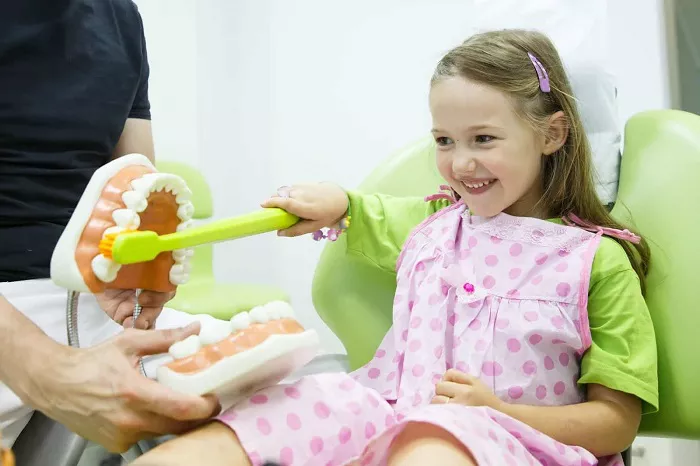Pediatric dentistry is a unique and rewarding specialty within the field of dentistry. It focuses on the oral health care of infants, children, adolescents, and those with special health care needs. The decision to pursue pediatric dentistry is often driven by a combination of personal interests, career aspirations, and the desire to make a significant impact on the lives of young patients. In this article, we will explore the various reasons why one might choose pediatric dentistry as a career path.
The Joy of Working with Children
Innocence and Enthusiasm
Children bring a sense of innocence and enthusiasm to the dental office. Their unfiltered reactions and genuine curiosity can make each day interesting. For example, a young child might be fascinated by the dental tools and ask a stream of questions about how they work. This inquisitiveness can create a lively and engaging atmosphere that is different from treating adult patients.
They are often more open to new experiences and can be easily distracted or comforted. A simple sticker or a small toy can turn a potentially scary dental visit into a positive one. This allows dentists to use creative ways to build rapport and gain the child’s trust.
Making a Lasting Impact
By providing good oral health care to children, dentists can have a long-term impact on their lives. Establishing proper oral hygiene habits at a young age can set the stage for a lifetime of healthy teeth and gums. For instance, teaching a child to brush and floss correctly and emphasizing the importance of regular dental check-ups can prevent many dental problems in the future.
Pediatric dentists also play a role in shaping a child’s attitude towards dentistry. A positive experience in the dental chair can reduce dental anxiety and make the child more likely to continue seeking dental care as they grow older.
Unique Challenges and Skill Development
Behavior Management
One of the main challenges in pediatric dentistry is managing the behavior of young patients. This requires a specific set of skills. Dentists need to be able to communicate effectively with children, using age-appropriate language and tone. For example, explaining a dental procedure in simple terms like “We’re going to tickle your tooth to make it better” instead of using technical jargon.
They may use various behavior management techniques such as positive reinforcement, distraction, and tell-show-do.Positive reinforcement could involve giving a child a sticker or praise for being brave during an examination. Distraction techniques might include playing a favorite cartoon or using a toy to divert the child’s attention during a treatment. The tell-show-do method involves telling the child what will happen, showing them the tool or procedure, and then doing it.
Specialized Knowledge and Treatment
Pediatric dentists need to have in-depth knowledge about the growth and development of children’s teeth and jaws. They must understand the differences between primary and permanent teeth and how to address issues like teething, tooth eruption patterns, and space management. For example, knowing when and how to place a space maintainer if a primary tooth is lost prematurely is crucial to ensure proper alignment of the permanent teeth.
They are also trained to handle dental emergencies in children, such as a knocked-out tooth. Immediate and proper treatment can increase the chances of saving the tooth. Additionally, pediatric dentists are often involved in interceptive orthodontics, which aims to correct developing orthodontic problems at an early stage.
A Growing Field with Opportunities
Increasing Awareness of Pediatric Oral Health
There is a growing awareness among parents and caregivers about the importance of children’s oral health. This has led to an increased demand for pediatric dental services. More parents are seeking regular dental check-ups for their children and are willing to invest in preventive care like fluoride treatments and dental sealants.
Schools and community health programs are also focusing more on oral health education for children. Pediatric dentists can get involved in these initiatives, which not only helps in promoting oral health but also increases their professional visibility.
Collaboration and Research Opportunities
Pediatric dentists often collaborate with other healthcare professionals such as pediatricians, orthodontists, and speech therapists. For example, they may work together to address a child’s oral health issues that could be related to overall growth and development or speech problems.
There are also numerous research opportunities in pediatric dentistry. Research can focus on improving treatment techniques, developing new dental materials that are more suitable for children, or studying the long-term effects of early oral health interventions. This allows dentists to contribute to the advancement of the field and stay updated with the latest knowledge.
Conclusion
Choosing pediatric dentistry offers a fulfilling career path filled with unique rewards. The opportunity to work with children and make a positive impact on their oral health and overall well-being is a significant draw. The challenges in behavior management and the need for specialized knowledge provide a platform for continuous skill development. Moreover, the growing field and the associated opportunities for collaboration and research ensure that pediatric dentists can have a dynamic and progressive career. For those with a passion for children and a desire to be at the forefront of promoting good oral health from a young age, pediatric dentistry is an excellent choice.

